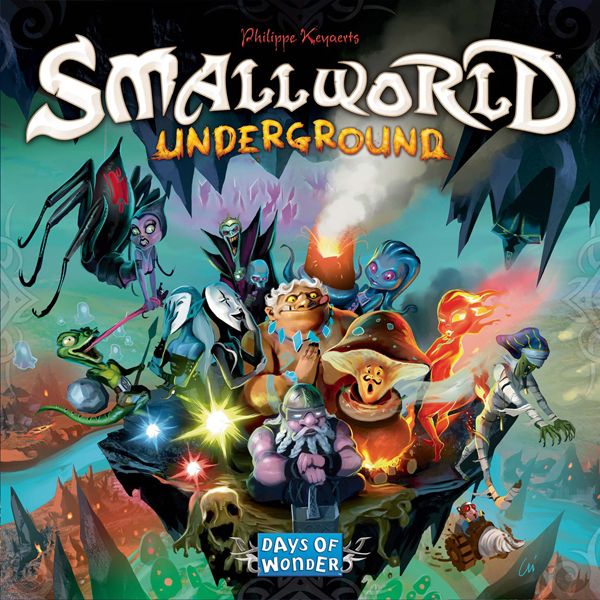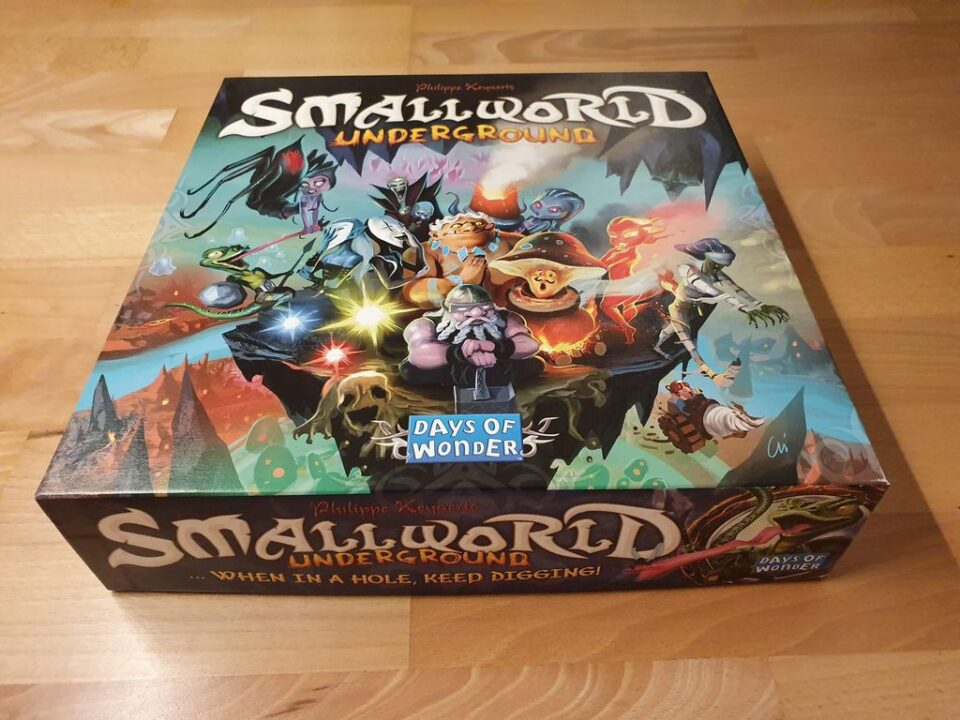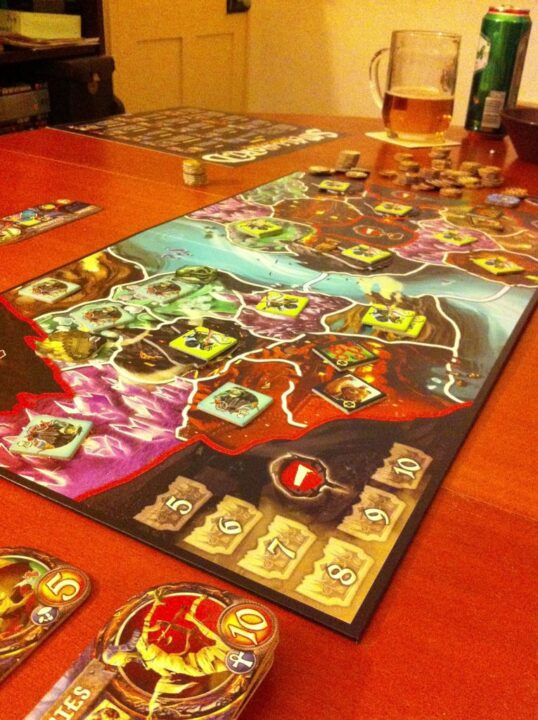Overview
Welcome to my detailed review of Small World Underground. Often, a board game’s real charm is seen not just on the surface, but as you delve deeper into its multifaceted layers. Here, we’ll embark on a subterranean journey to scrutinize this game’s design, starting from the intricate race and power combination mechanics to the nuanced strategies behind area control and, finally, analyze the social richness fostered through player interaction and diplomacy dynamics. Join me as we unearth what makes Small World Underground a stand-out title or if it falls short in the crowded cavern of board gaming.
How It Plays
Setting Up
‘Small World Underground’ begins with players picking a combination of race and special power. Each player then claims territories using their allotted race tokens.
Gameplay
During their turn, a player expands across the map, attempting to control as many regions as possible. Strategy is essential, as space is limited, and opponents won’t give up their territories easily. Ultimately, considering when to put your active race into decline to select a new one adds another strategic layer.
Winning the Game
After a set number of turns, the game ends, and players count their Victory coins. The one with the highest number of coins wins, signifying their dominance over these whimsical lands.
Want to know more? Read our extensive strategy guide for Small World Underground.
The Synergy of Selection: Race & Power Mechanics
In my time delving into deckles corners of Small World Underground, the fabric that weaves together the most compelling stories is undoubtedly the race and power combinations. I’ll never forget the evening when, through a strategic pick, my Cherubic Sorcerers gained control over vast territories, to the sheer exasperation of my friends.
Finding the Perfect Pair
Transitioning from disbelief to strategy, every player in Small World Underground quickly learns that synergies aren’t just beneficial; they’re crucial. Like pairing a robust cheese with a fine wine, the combination sets the tone of your game—the potent mix of maneuvers reinforcing each other, dazzling not just in ability, but in thematic cohesion.
Memorable Combos
Moreover, isn’t the joy found in recounting unmatched plays? When my Reborn Wizards dramatically overthrew my opponent’s Fortresses, it wasn’t just a victory; it was a story for the ages. Importantly, the game remains accessible even as complexity rises; a design feat deftly executed by the creators. The impact is significant, ensuring no two playthroughs feel the same.
Speaking of strategic domination, our review would be amiss without a discussion of Area Control & Conflict Strategy, an element just as engaging as the races and powers harnessed throughout underground skirmishes.
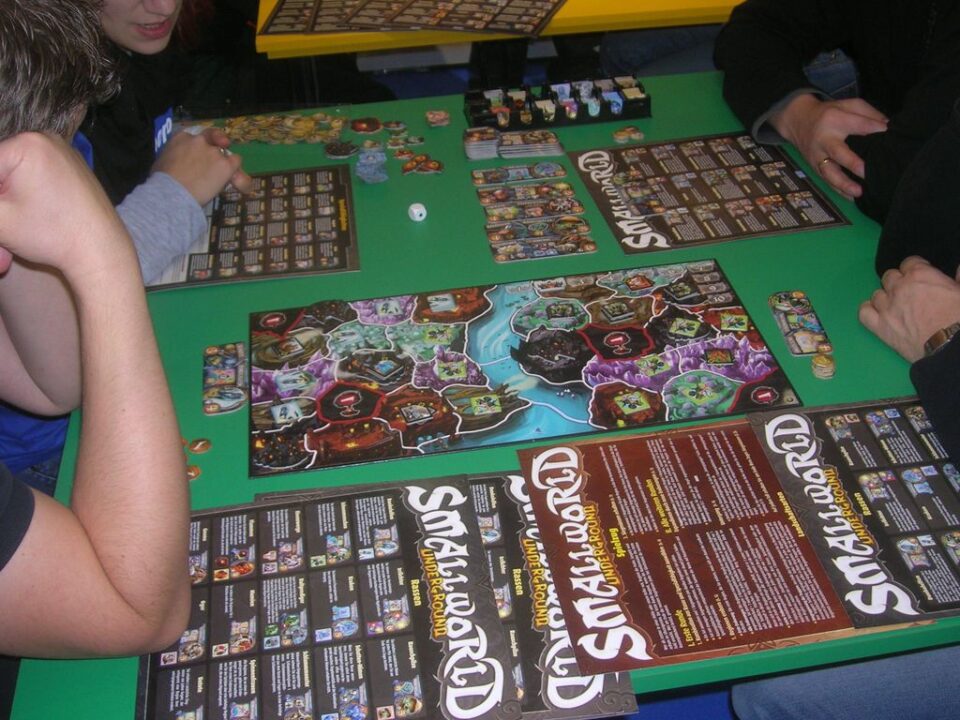
Conquering Depth: Claim Your Territory
Discussing Area Control & Conflict Strategy inevitably brings to mind raucous evenings playing Small World Underground. The gripping tension as players vie for dominion over the labyrinthine underworld sparks electrifying clashes that remain talk of the night long after pieces are packed away.
Strategic Placement
Defining moments often come down to strategic positions. I recall the gripping uncertainty while desperately holding choke points against encroaching foes – the heart-racing deadlock that turned the tide in my favor.
Conflict With Purpose
It’s not conflict for conflict’s sake, it’s a nuanced dance requiring forethought and, occasionally, the courage to retreat for a greater comeback. Winding down intense underground scuffles broadens the spotlight next onto Player Interaction in my Small World Underground Review.
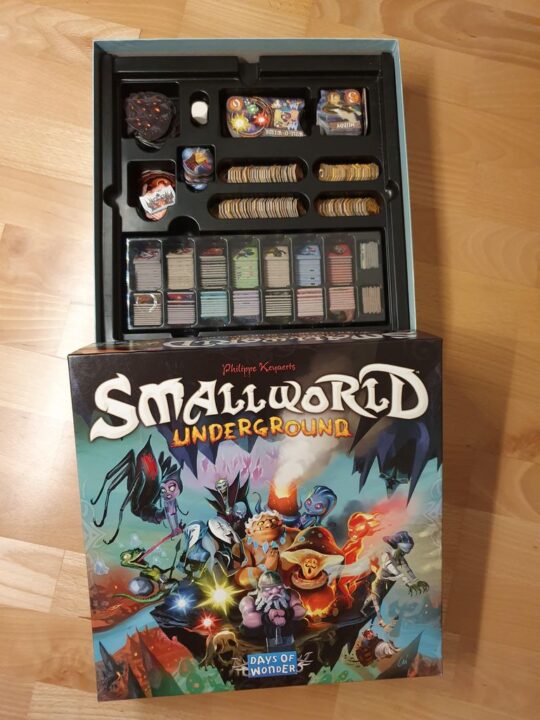
The Dance of Diplomacy in Dominance
When discussing Small World Underground, one simply cannot ignore the dramatics of player interaction and the subtle art of diplomacy that takes place. As someone who revels in the ebb and flow of persuasive banter among peers over a game board, this game lights up the table with an endless tangle of alliances and feigned friendships.
Negotiation is Key
In one memorable session, I remember how a simple trade of regions escalated to a vigorous exchange of promises, later to be gleefully broken. It’s this level of gleaned trust that turns the tides of conflict into something manageable and downright engaging – obviously, until it’s your turn to be betrayed.
Dynamic Dynamics
Indeed, the layer of sociability becomes the linchpin of an otherwise territory-focused competition. Intrigue piles up as quickly as armored races on the board. Counter this fact with the outright thrill of manipulating the given, shifting dynamics to your advantage, and you have a game boosting the spirits of conversation and strategy alike.
With its intricate tapestry weaving player plots with astute strategies, I wholeheartedly recommend Small World Underground for those craving for their diplomacy skills to be as crucial as their battle plans.
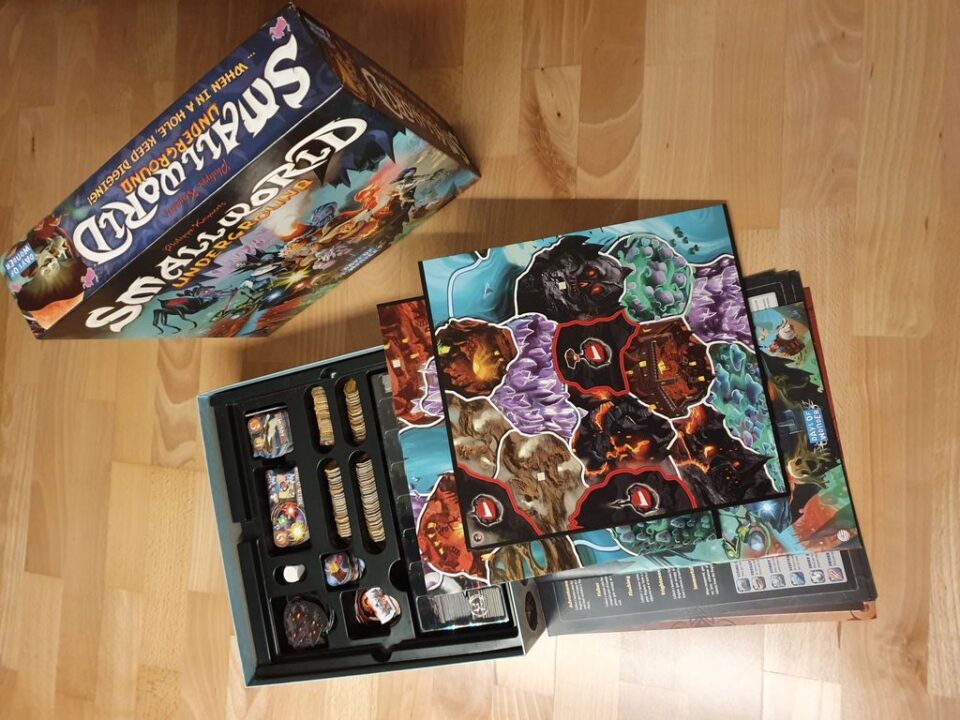
Conclusion
Wrapping up this review, ‘Small World Underground’ proves itself as a powerhouse of riveting strategies and social dynamics. Whether you’re distributing your forces in a strategic bid for subterranean dominance or negotiating shaky alliances that could crumble at any moment, the game keeps you on your toes. This isn’t just about moving pieces on a board; it’s a dance of wit and guile, influencing your adversaries without uttering a single word. In conclusion, those looking for a game that melds mechanical brilliance with exceptional player interaction will find ‘Small World Underground’ to be a compelling addition to their collection.

